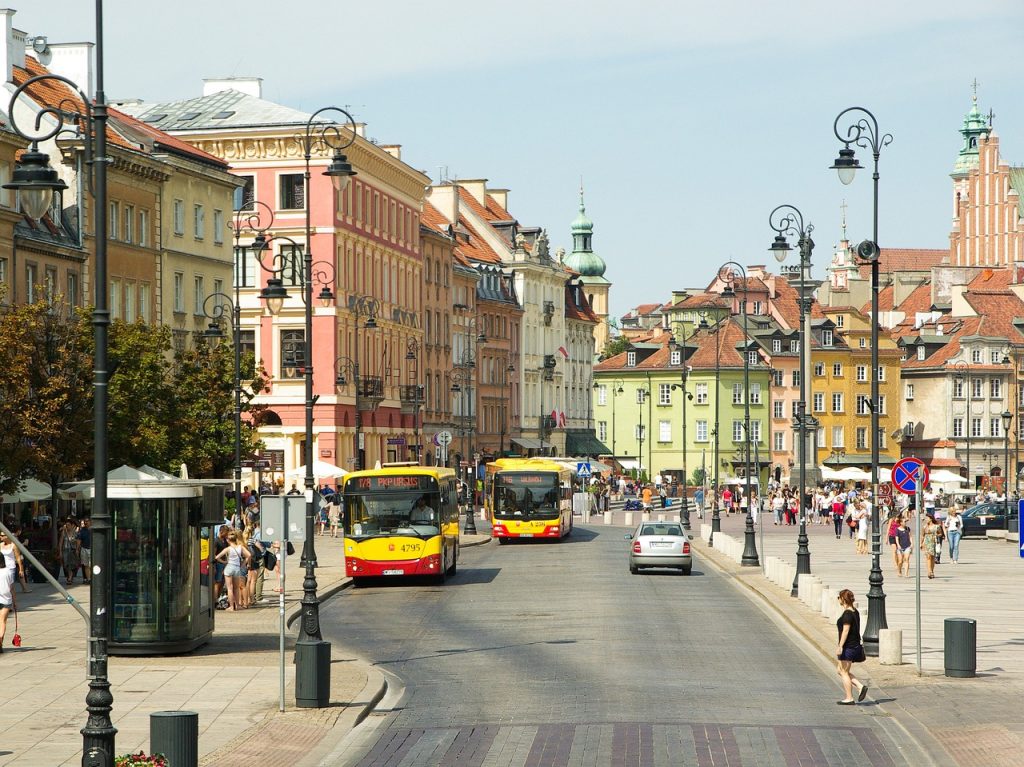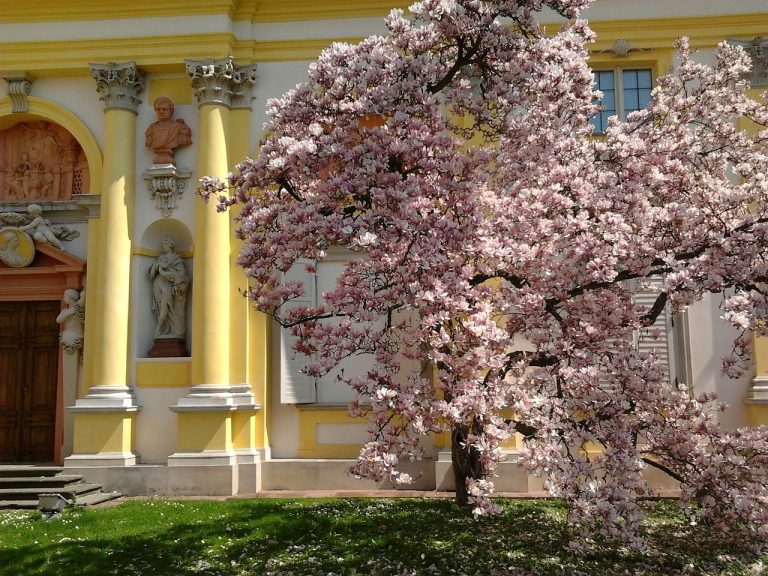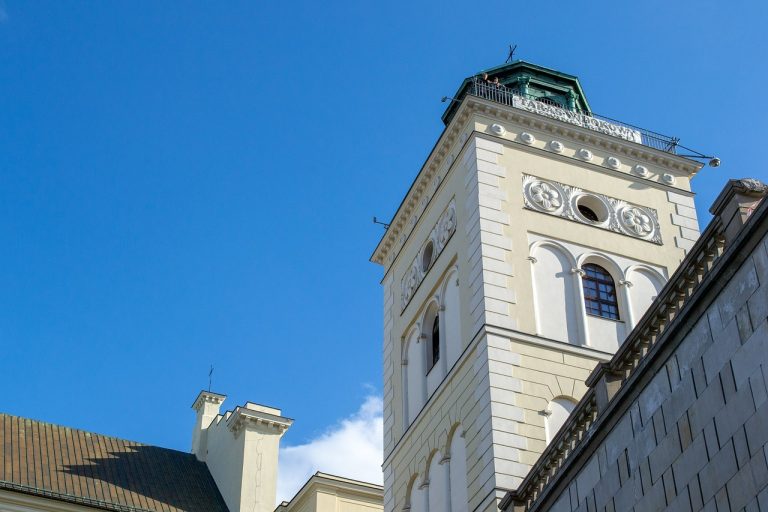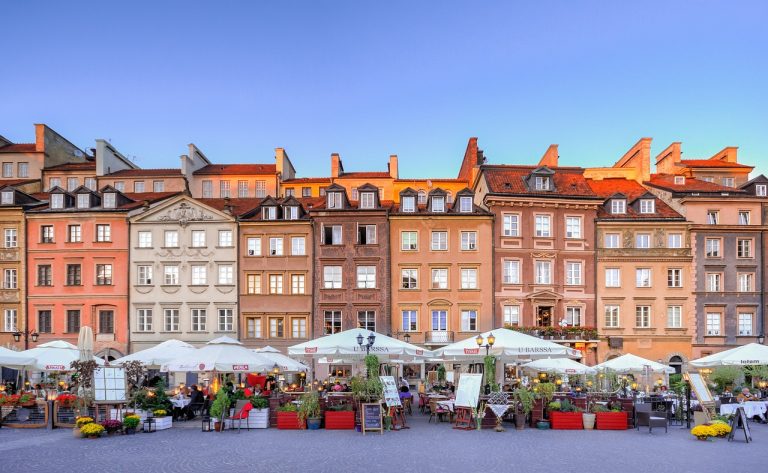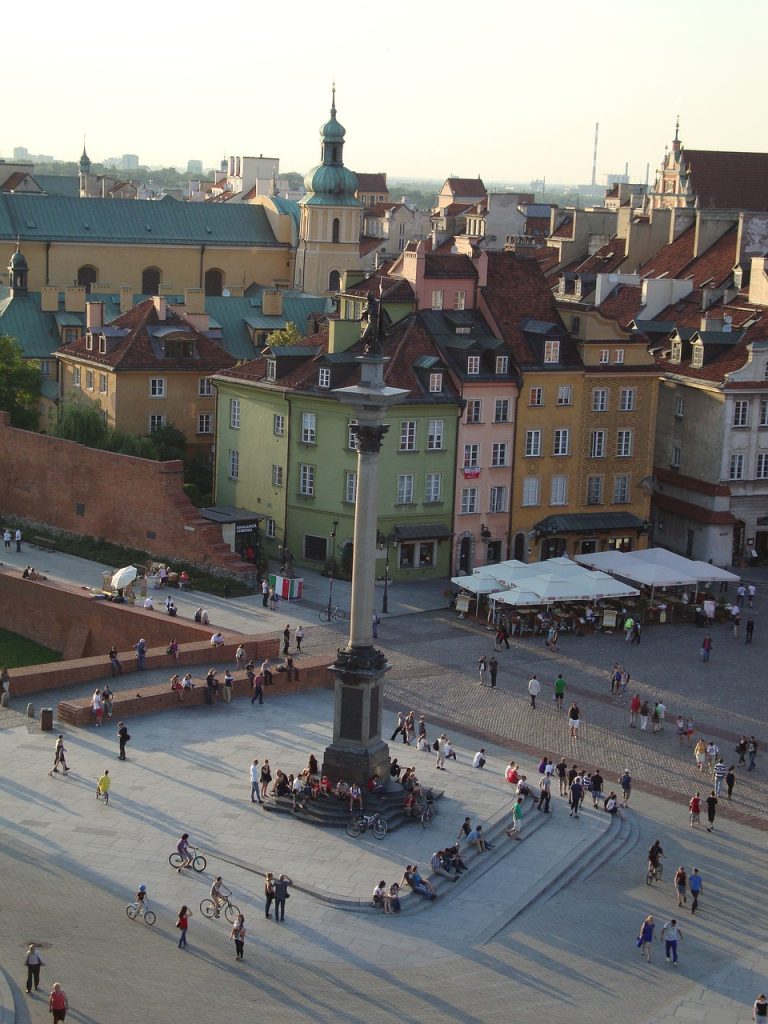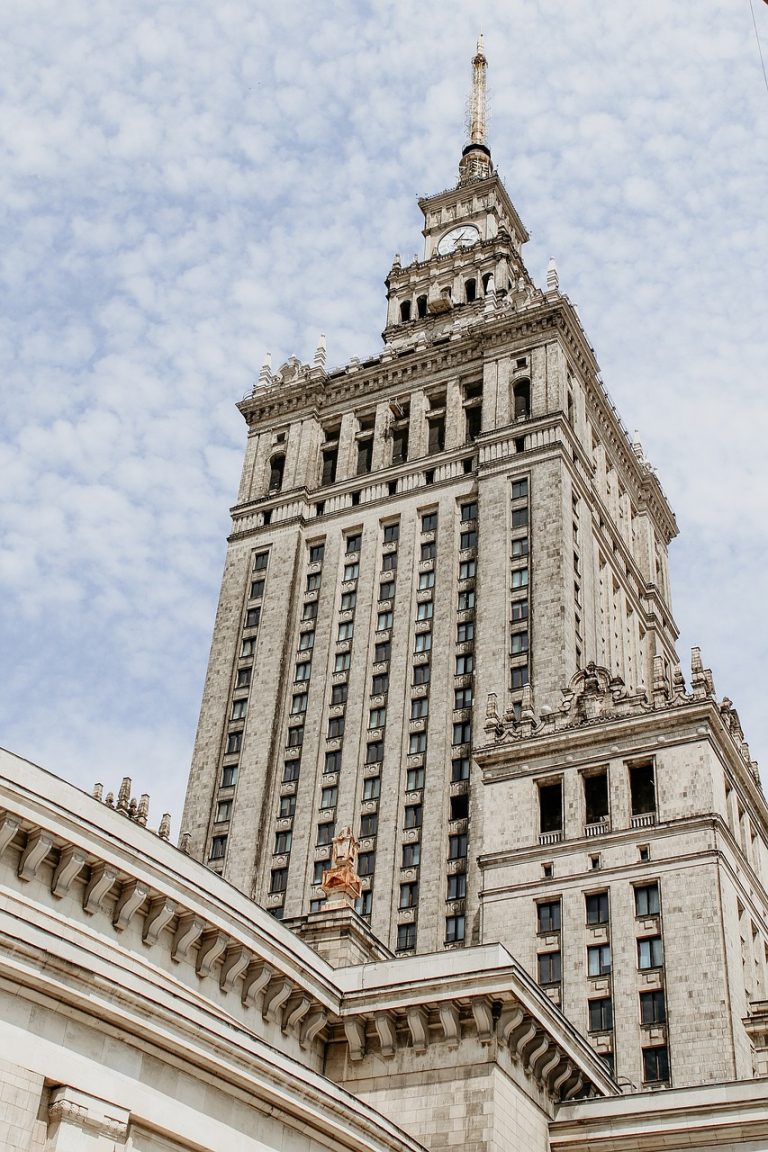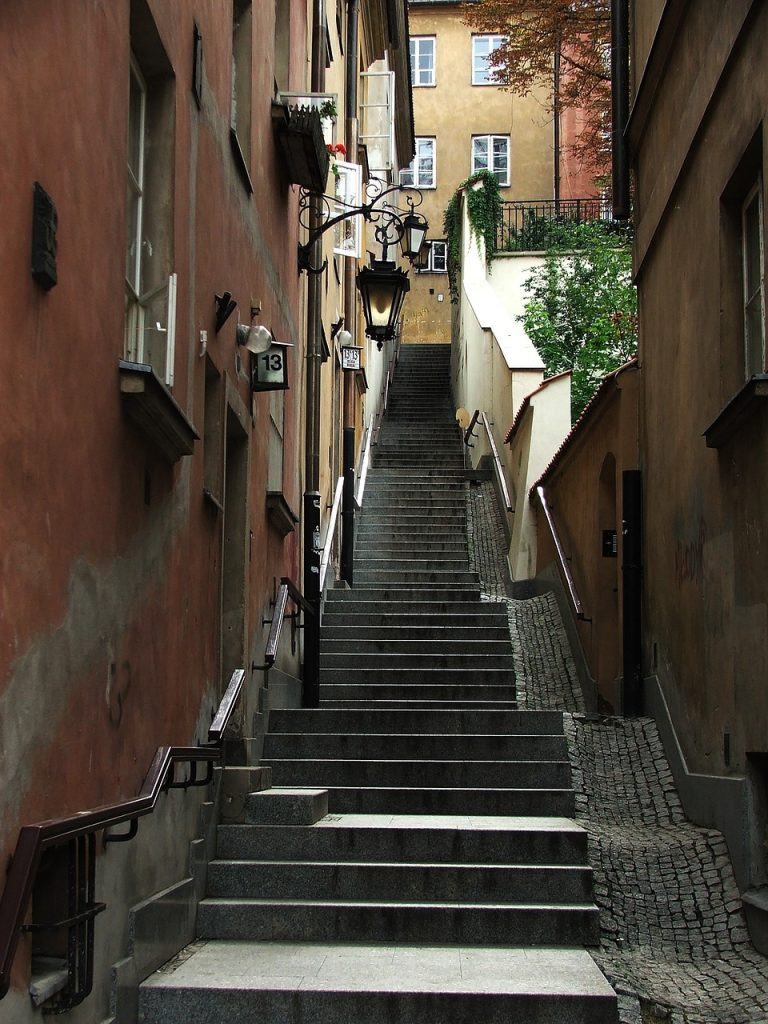Warsaw Poland Video
Eco-tourism in Warsaw Poland: Sustainable and Green Travel Options
Warsaw, the capital city of Poland, offers a unique blend of history, culture, and natural beauty. With its commitment to sustainability and eco-friendly practices, Warsaw has become a popular destination for eco-tourism. This article explores the sustainable and green travel options available in Warsaw, allowing visitors to enjoy the city while minimizing their environmental impact.
Public Transportation
One of the best ways to explore Warsaw sustainably is by utilizing its efficient public transportation system. The city boasts an extensive network of buses, trams, and metro lines, making it easy to navigate and reduce carbon emissions. The Warsaw Public Transport Authority (ZTM) offers various ticket options, including single-use tickets, day passes, and multi-day passes, providing visitors with flexibility and affordability. By opting for public transportation, visitors can minimize their carbon footprint while experiencing the city’s vibrant atmosphere.
- Convenient and affordable ticket options
- Extensive network of buses, trams, and metro lines
- Reduced carbon emissions
Visitors can choose from a range of ticket options that suit their travel needs and budget. The availability of different ticket types ensures convenience and affordability for eco-conscious travelers.
Warsaw’s well-connected public transportation system allows visitors to easily access various attractions, reducing the need for private vehicles and contributing to a greener travel experience.
By opting for public transportation, visitors can significantly reduce their carbon footprint compared to using individual vehicles, promoting sustainable travel practices.
Cycling Infrastructure
Warsaw is also known for its excellent cycling infrastructure, making it an ideal city for eco-conscious travelers who enjoy exploring on two wheels. The city offers an extensive network of bike lanes and paths, ensuring safe and convenient cycling routes throughout the city. Visitors can rent bicycles from various bike-sharing services, such as Veturilo, and embark on eco-friendly adventures while enjoying the city’s scenic beauty.
- Extensive network of bike lanes and paths
- Bike-sharing services
- Scenic routes and green spaces
Warsaw’s well-developed cycling infrastructure provides visitors with safe and convenient routes to explore the city on bicycles, promoting sustainable and active travel.
Visitors can easily rent bicycles from bike-sharing services like Veturilo, allowing them to enjoy the city’s attractions at their own pace while minimizing their carbon footprint.
Exploring Warsaw by bike offers the opportunity to discover the city’s picturesque parks, riverside paths, and green spaces, immersing visitors in its natural beauty.
Eco-friendly Accommodations
When it comes to eco-friendly accommodations, Warsaw offers a range of sustainable options that prioritize environmental conservation and responsible practices. Many hotels in the city have implemented energy-saving initiatives, waste reduction measures, and eco-certifications to minimize their ecological impact. Visitors can choose from eco-conscious hotels, guesthouses, and hostels, ensuring a comfortable stay while supporting sustainable tourism.
- Energy-saving initiatives
- Waste reduction and recycling
- Eco-certifications
Various accommodations in Warsaw implement energy-saving measures such as energy-efficient lighting, smart thermostats, and renewable energy sources to minimize their carbon footprint.
Eco-friendly accommodations prioritize waste reduction and recycling practices, encouraging guests to participate in responsible waste management during their stay.
Some accommodations in Warsaw hold eco-certifications, such as the Green Key certification, which ensures compliance with sustainable practices and environmental standards.
Sustainable Dining Options
Warsaw’s culinary scene also embraces sustainability, offering a variety of dining options that prioritize locally sourced ingredients, organic produce, and eco-friendly practices. Visitors can indulge in delicious meals while supporting establishments that promote sustainable agriculture, reduce food waste, and prioritize ethical sourcing.
- Locally sourced ingredients
- Organic and sustainable farming
- Reduced food waste
Many restaurants in Warsaw prioritize locally sourced ingredients, supporting local farmers and reducing the carbon footprint associated with long-distance food transportation.
Some dining establishments in Warsaw focus on organic and sustainable farming practices, ensuring that the food served is free from harmful chemicals and promotes ecological balance.
Sustainable restaurants in Warsaw implement measures to minimize food waste, such as portion control, composting, and creative menu planning.

Green Spaces and Parks
Warsaw takes pride in its abundant green spaces and parks, providing visitors with opportunities to connect with nature and enjoy outdoor activities. The city is home to numerous parks, including the beautiful Łazienki Park, which features stunning gardens, historic monuments, and a serene lake. Visitors can explore these green spaces, go for leisurely walks, have picnics, or engage in recreational activities.
- Łazienki Park
- Outdoor activities
- Nature conservation
Łazienki Park is one of Warsaw’s most famous parks, offering visitors a tranquil escape in the heart of the city. The park features lush gardens, charming pavilions, and the iconic Palace on the Isle.
Green spaces in Warsaw provide opportunities for outdoor activities such as jogging, cycling, yoga, and picnicking, allowing visitors to enjoy nature while staying active.
Warsaw’s green spaces play a crucial role in preserving biodiversity and protecting native flora and fauna, contributing to the city’s ecological balance.
Cultural and Historical Sites
Warsaw’s rich history and cultural heritage are evident through its numerous museums, historic sites, and landmarks. Visitors can explore these attractions while learning about the city’s past and its significance. Many of these sites incorporate sustainable practices, such as energy-efficient lighting, waste management systems, and educational programs on environmental conservation.
- The Warsaw Uprising Museum
- The Royal Castle
- Sustainable initiatives
The Warsaw Uprising Museum commemorates the heroic struggle of the Polish resistance during World War II. The museum showcases artifacts, interactive exhibits, and multimedia presentations, providing visitors with a profound historical experience.
The Royal Castle, a UNESCO World Heritage Site, offers a glimpse into Poland’s royal history. The castle’s restoration included sustainable practices, ensuring the preservation of its cultural significance for future generations.
Many cultural and historical sites in Warsaw implement sustainable initiatives, such as energy conservation, waste reduction, and educational programs promoting environmental awareness.

Local Markets and Eco-Friendly Shopping
Exploring local markets in Warsaw is not only a great way to experience the city’s vibrant atmosphere but also an opportunity to support sustainable and ethical shopping practices. Visitors can find a wide array of fresh produce, local handicrafts, and eco-friendly products, allowing them to make conscious choices that benefit both the environment and local communities.
- Farmers’ markets
- Eco-friendly products
- Fair trade and ethical practices
Warsaw’s farmers’ markets offer a variety of locally grown fruits, vegetables, dairy products, and artisanal goods. By shopping at these markets, visitors can support local farmers and reduce the carbon footprint associated with long-distance food transportation.
Several shops in Warsaw specialize in eco-friendly products, including sustainable clothing, organic cosmetics, and zero-waste alternatives. These establishments promote conscious consumerism and sustainable lifestyle choices.
Some markets and shops in Warsaw prioritize fair trade principles and ethical sourcing, ensuring that products are produced under humane working conditions and without exploiting the environment.
Environmental Awareness and Education
Warsaw is committed to raising environmental awareness and promoting sustainable practices among both residents and visitors. The city hosts various events, workshops, and educational programs that focus on environmental conservation, waste management, and renewable energy. Visitors can participate in these initiatives to learn more about sustainable living and contribute to the city’s eco-conscious community.
- Environmental events and workshops
- Sustainable tourism campaigns
- Renewable energy initiatives
Warsaw organizes environmental events and workshops that cover a wide range of topics, including renewable energy, waste reduction, and sustainable urban development. These initiatives aim to educate and inspire visitors to adopt eco-friendly practices.
The city actively promotes sustainable tourism through campaigns and initiatives that encourage responsible travel behavior, such as reducing plastic waste, supporting local businesses, and respecting natural habitats.
Warsaw is dedicated to increasing the use of renewable energy sources. The city has implemented several projects, including solar panels and wind turbines, to reduce its carbon footprint and promote sustainable energy practices.
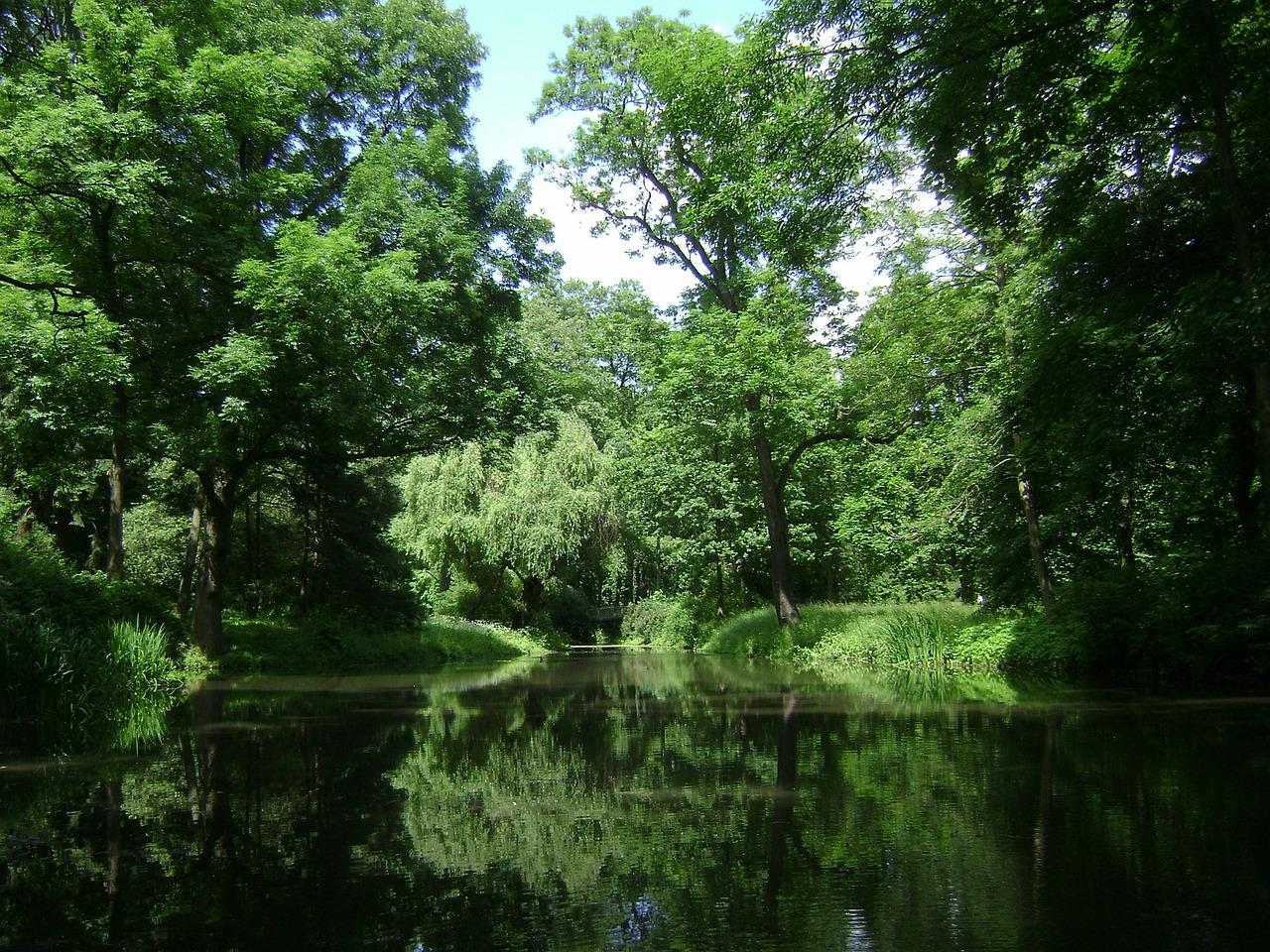
Conclusion
Warsaw, Poland, offers a wide range of sustainable and green travel options for eco-conscious visitors. From efficient public transportation and cycling infrastructure to eco-friendly accommodations and dining establishments, the city prioritizes environmental conservation and responsible practices. Visitors can also enjoy the city’s abundant green spaces, explore its cultural and historical sites, and support local markets that promote sustainable and ethical shopping. With its commitment to environmental awareness and education, Warsaw provides a holistic eco-tourism experience that allows visitors to enjoy the city while minimizing their environmental impact.
References
- Warsaw Public Transport Authority (ZTM) – ztm.waw.pl
- Veturilo – veturilo.waw.pl
- Green Key Certification – greenkey.global
- The Warsaw Uprising Museum – warsawuprisingmuseum.com
- The Royal Castle – zamek-krolewski.pl

